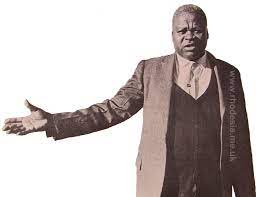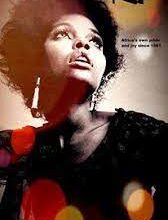Jairos Jiri – Africa’s Greatest Philanthropist ( Read This Article And Watch the Accompanying Video To Discover What You Never Knew About This Man ) | A ZimLegends Production
Giant Of The Giants - Walking Down The Memory Lane - Lest We Forget Zimbabwe Legends
Jairos Jiri

Africa’s Greatest Philanthropist
By Tapfuma Machakaire
Humanism, empathy and the responsibilities of royalty, contributed towards the shaping of one of the greatest philanthropists on the African continent, Jairos Jiri.
At the time of his death in 1982, the organisation that Jiri founded in Zimbabwe in 1950, to cater for people with disabilities had established sixteen special facilities countrywide.
These include special schools for the disabled, vocational training centres, clinics, orthopaedic workshops, community-based rehabilitation centres, craft shops and gender empowerment programs.
Born in 1926 in Bikita district Masvingo province, Jairos Jiri was the son of the Rozvi chief, Mutenyami Jiri, of the Munhumutapa dynasty.
The young Jairos grew up observing his father’s social services activities in the community such as providing food to the needy. His mother, Mai Marufu was also from a royal family from where she adopted the concept of charity work.
Jiri witnessed a lot of suffering in Bikita district, which is situated in natural ecological regions four and five, characterised by low rainfall and poor sandy soils.These were areas referred to by the colonial regime as Tribal Trust Lands where indigenous people were forcibly placed to deprive them access to productive land in regions one up to three.
His family was not spared from the suffering that emanated from the colonial policy of deprivation, and this was to affect his upbringing.
The tough experience wouldprovide crucial lessons to Jiri, lessons that would induce the values of empathy and selflessness.
Jiri failed to enrol for school at an early age as his parents could not afford school fees. He enrolled for Sub A (grade one) at Gokomere Mission at 11 years of age in 1937, after raising funds through selling chickens and vegetables.
It is reported that staff at the school found the young Jiri to be too intelligent for Sub A and moved him upwards to sub B just two weeks after his arrival at the mission school.
Sadly, fate would not allow the young boy to proceed any further with formal education as he suddenly fell ill, and was sent home. After several months Jairos left home for Fort Victoria (now Masvingo) where he got employed as a domestic worker.
In 1939 Jairos and his brother Mazviyo, walked a distance of about 300 kilometres from Masvingo to Bulawayo in search of employment. In Bulawayo Jiri worked as a gardener for white families and also as a newspaper vendor.
By then, Jiri had already started expressing concern over the deplorable state of people with disabilities whom he had observed in Fort Victoria and in Bulawayo.
In the early 1940s, he joined the Rhodesian Africa Rifles as a dishwasher at a centre for rehabilitation of injured soldiers who were involved in World War 11. Moved by the care work at the centre, Jiri started helping other needy people in whichever way he could.
It is said on one occasion, he carried a disabled man on his bicycle and took him to Old Memorial Hospital for corrective surgery. He paid the hospital fees from his meagre earnings. He then began to accommodate some blind beggars at his house whom he would found begging on the streets of Bulawayo.
Jiri would come across more destitute and disabled people, some half-naked. The situation was very different from what he was used to in his village, where the needy would be catered for by the traditional leaders, who included his parents.
Much as he wished to help the disabled and the destitute in the city of kings, Jiri would be constrained by lack of resources.
Jiri’s desire to assist the less privileged in society resonated with the objectives of the liberation struggle that was being waged against the colonial regime in Rhodesia. This is how Jiri befriended nationalists such as Benjamin Borombo, Joshua Mqabuko Nkomo, Gideon Mazaba, Mike Hove and Michael Mawema. Those men helped Jiri in drafting a constitution which culminated in the registration of the Bulawayo and Bikita Physically Defective Society in 1950.
The organisation which was later renamed Jairos Jiri Association for the Rehabilitation of the Disabled and the Blind, became the first disability organisation to be registered by a black person in Rhodesia.
Jiri went through many hurdles in the registration process as the colonial administrators initially dismissed it as a weird idea from an uneducated “kaffir”.
The first committee of the association included Stephen Kwenda as Secretary, Fabian Dururu Treasurer, and two committee members Job Mapfinya and Jacob Mufute.
The association held its first skills training workshop in Makokoba high density suburb in 1959. The Bulawayo City Council donated land for the development of the first skills training centre in Nguboyenja high density suburb while funds for construction of the workshops came from the State Lotteries.
Impressed by Jiri’scommitment to help people with disabilities, the United States Consular General offered him a three-month grant to tour rehabilitation centres in the United States and Europe.
Jiri later expanded his work to Harare (then Salisbury) after getting land from Salisbury City Council.
The art and craft outlet established by the association in Bulawayo in the 1960s became a prime source of curios for tourists, who were attracted by the immaculate artistic products crafted by people with disabilities.
The Nguboyenja training centre which to date still has a vibrant music and dance training department produced icons such as Paul Matavire and the Jairos Jiri Band, Fanyana Dube, David Mabviramiti and others.
The association continued to diversify its activities and by 1974 the organisation had started assisting in the provision of accommodation and legal assistance to people with disabilities. The work of the association has so much impact that what has become known as The Jairos Jiri model, has been replicated by many charity organisations in Zimbabwe.
The organisation is still being supported and funded by well-wishers from both local and abroad. Recognition for Jiri’s work started as early as 1959 when Her Majesty Queen Elizabeth II of England awarded him Member of the British Empire status, in recognition of his outstanding contribution to his fellow countrymen.
In 1963 Jiri was granted Freedom of the City of Bulawayo. Later that year he was invited to Kampala in Uganda where he addressed an International Symposium on Rehabilitation.
In July 1975 Jiri had an audience with Pope Paul VI, where he received a blessing for his great work and was presented with a medal marking a Holy year.
On May 16, 1977, Jiri was awarded an honorary Master of Arts degree by the University of Rhodesia. In the same year, he also received the Lions International Service Award and a Humanitarian Award from the then Salisbury Union of Jewish Women.
In 1981 Jiri became the first recipient of the newly inaugurated Goodwill Industries International Award for Humanitarian and Rehabilitation Work. Rotary Internationalalso presented him with their International Year of Disabled Person Award for Africa which carries citation “Greatest Contribution to Rehabilitation in Africa IYDP 1981”.
In June of the same year, Jiri was granted Freedom of the City of Los Angeles. In 1982 he secured sponsorship from partners in Europe and the United States of America for training of his staff in financial control, administration, workshop management and agriculture.
He died on November 12 1982. Jairos Jiri was supposed to be buried at the National Heroes Acre in Harare but his family opted to have him buried at his rural home, Mutenyami Village in Bikita.
The state took responsibility for the funeral which was attended by the then Prime Minister, Robert Gabriel Mugabe, his deputy Simon Muzenda, several cabinet ministers and other dignitaries.
Jairos Jiri who divorced three times had 18 children.
Zororai Murugare Baba Jiri (Rest in peace father Jiri) was the message from one of his beneficiaries, the late famous musician Paul Matavire in a befitting emotive send-off piece that he sang at the burial.




537 Comments